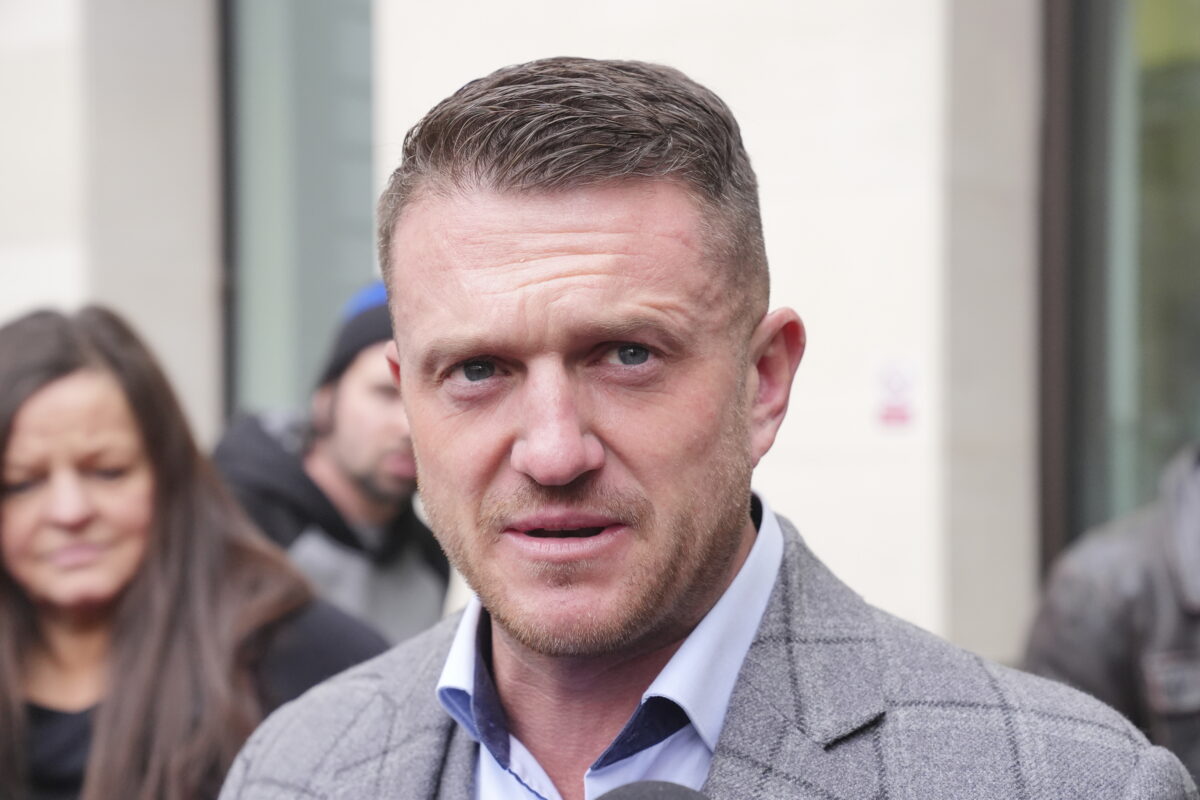
Tommy Robinson, real name Stephen Yaxley Lennon outside Westminster Magistrates’ Court, central London, where he was accused of failing to comply with a direction to leave an antisemitism march in Westminster on November 26 of last year. Robinson was arrested near the Royal Courts of Justice in London. 75959520 (Press Association via AP Images)
Tommy Robinson was cleared of failing to leave an antisemitism march in Westminster last November after a Metropolitan Police blunder was revealed during court proceedings.
The case was dropped by the judge after it was revealed by a senior police officer that the dispersal order, meant to maintain public order during the protest and under which Robinson was arrested, had mistakenly been dated two days prior to the actual event.
Robinson, whose real name is Stephen Yaxley-Lennon, denied that he had failed to comply with police, for which he was arrested.
District Judge Daniel Sternberg said: “I am not satisfied there was a legal authorisation. There is no case for you to answer.”
The paperwork error was disclosed during courtroom exchanges when Inspector Steve Parker-Phipps, responsible for the botched order, conceded the error after defence questioning which highlighted the “litany of catastrophic errors” by the police.
Robinson, arrested in a nearby cafe and subjected to force including pepper spray after he became “resistant.” He maintained that he was at the march as a journalist.
In response to the ruling, the Met pledged to reassess their procedures to prevent future errors, emphasising the balance they strive to maintain between protest rights and public safety.
A police statement on the ruling read: “Stephen Lennon had been charged with failing to comply with an order to disperse from the vicinity of the March Against Antisemitism as it formed up on the Strand on Saturday, 26 November. The court has found Mr Lennon has no case to answer, owing to a number of procedural errors by the police. We will review the finding to ensure any changes to our approach can be implemented without delay.
It added: “The decision to impose a dispersal order on that day was taken to provide officers with the powers to keep groups or individuals with opposing views apart, ensuring public safety and minimising the risk of disorder.”






